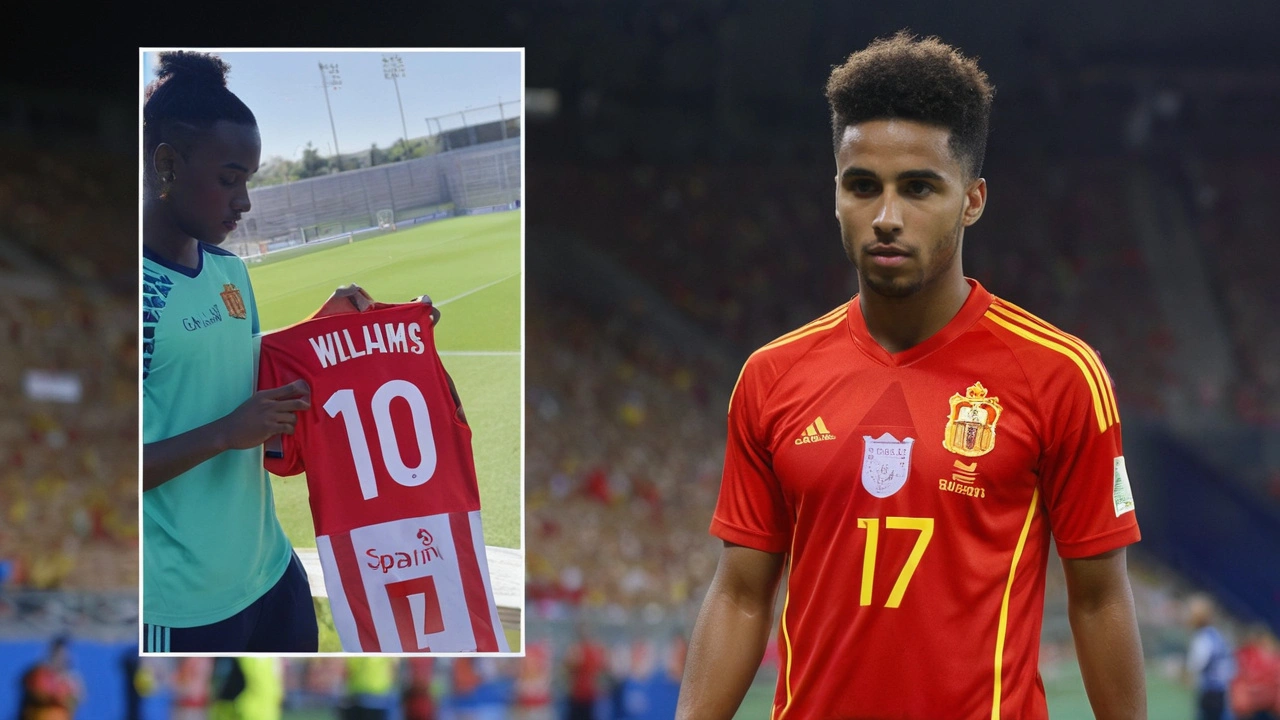Barcelona's Strategic Decision: No Nico Williams Signing in 2024
Barcelona's decision not to pursue the signing of Nico Williams in 2024 has drawn significant attention in the football world, particularly among the club's passionate fanbase. Insight into this choice reveals a multifaceted strategy balancing youth development and financial prudence. According to sources close to the club, multiple factors drove this decision, aimed at ensuring the long-term stability and competitive edge of one of Europe's most storied football institutions.
Youth Development Takes Center Stage
Barcelona has long been known for its strong academy system, which has produced legendary players like Lionel Messi, Xavi Hernandez, and Andres Iniesta. Maintaining this tradition, the club's management and coaching staff have prioritized the integration and development of youth players. Promising young talents within Barcelona's system, such as Ansu Fati and Ferran Torres, have shown immense potential. The commitment to nurturing homegrown players aligns with the club's philosophy and long-term vision. By allowing these talents more opportunities to shine, Barcelona aims to build a cohesive and dynamic squad.
Financial Constraints and Fair Play Regulations
Barcelona's financial situation has been a subject of intense scrutiny, especially in recent years. Amid mounting debt and the need for austerity, the club has been navigating significant financial constraints. Reducing the wage bill and adhering to La Liga's Financial Fair Play (FFP) regulations have become critical imperatives. Any high-profile signing requires careful consideration of the associated costs, including transfer fees and salaries. In the case of Nico Williams, the talented winger has shown great promise at Athletic Bilbao. However, his market value and the potential expenditures necessary to acquire him were deemed unsustainable under the current financial limitations.
Barcelona's strategy now involves a more cautious approach to transfers, focusing on cost-effective options that will not jeopardize their financial health. This approach necessitates the offloading of existing players to create budgetary space for new acquisitions, a challenging task given the financial demands in the current market.
Balancing Immediate Impact and Long-Term Goals
While Nico Williams has undoubtedly impressed with his performances, Barcelona's revised transfer policy prefers acquiring players who can make an immediate impact without breaking the bank. This shift reflects a pragmatic approach, ensuring the club maintains competitiveness without sacrificing financial security. The evaluation process for potential signings involves a thorough assessment of both the player's abilities and the financial implications of the transfer.
The decision to pass on Nico Williams illustrates a broader trend within the club's management, focusing on sustainable practices and long-term viability. By concentrating resources on talent already within their ranks and exploring more financially viable targets, Barcelona aims to build a resilient team capable of achieving success both on and off the pitch.
Fostering Future Stars and Ensuring Stability
Barcelona's emphasis on youth development is not merely a nostalgic nod to the past but a strategic choice for future success. Investing in young players offers the potential for significant returns, both in terms of performance and financial gains. By developing homegrown stars, the club can reduce dependency on external transfers, creating a self-sustaining model that supports continuous regeneration of talent.
This approach is particularly pertinent in today's football landscape, where transfer fees continue to soar, and financial pressures are ever-increasing. The club's decision-making process now heavily weighs the long-term benefits of promoting and developing its own players instead of making costly signings that may not guarantee immediate returns or align with the club's financial strategies.
Nico Williams: A Talent, Not Forgotten
Though Barcelona has decided against pursuing Nico Williams at this time, the young winger's career remains on an upward trajectory. His performances for Athletic Bilbao suggest a bright future, and he continues to attract interest across Europe. Barcelona's current priorities do not diminish Williams's potential but rather highlight the complex considerations intrinsic to modern football management.
The club's decision underscores a broader commitment to financial discipline, youth development, and long-term planning. As Barcelona continues to navigate the challenges of contemporary football, these principles will likely define their strategy, ensuring they remain competitive while maintaining fiscal responsibility.
In conclusion, Barcelona's choice not to sign Nico Williams in 2024 reflects a nuanced approach to team building and financial stability. The club's focus on nurturing existing talent and adhering to financial regulations demonstrates a commitment to sustainable growth and competitive integrity. While Nico Williams's talent is recognized, the current strategy prioritizes long-term goals over immediate gratification, aiming to secure a prosperous future for Barcelona both on and off the field.


Jay Bould
Barcelona’s focus on homegrown talent really shows they’re thinking long term.